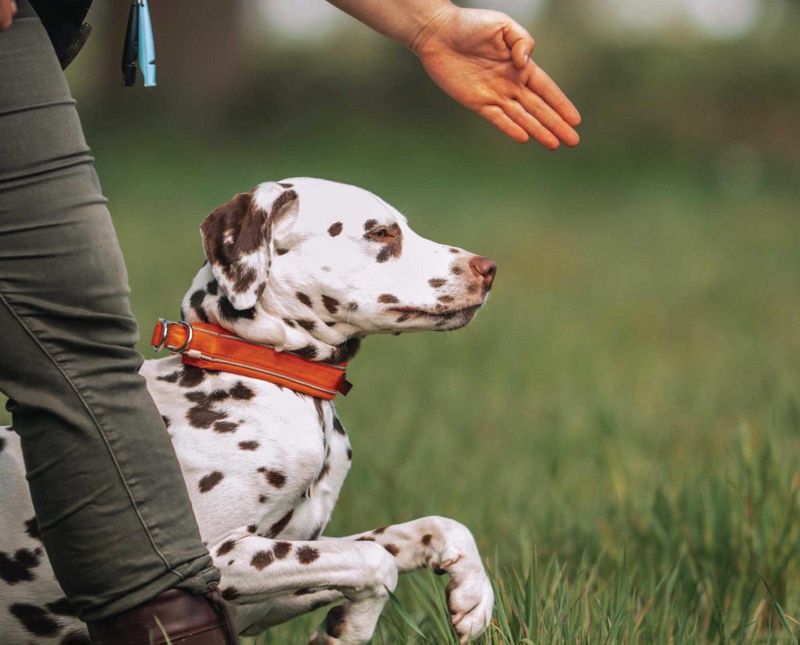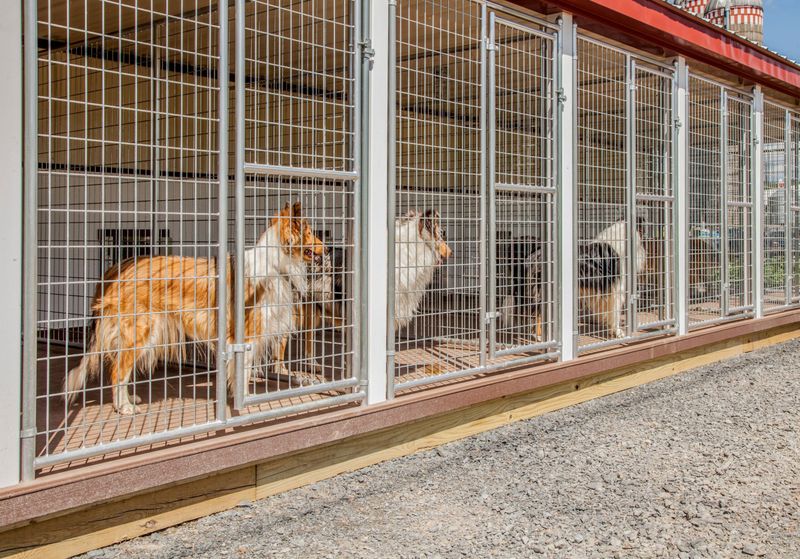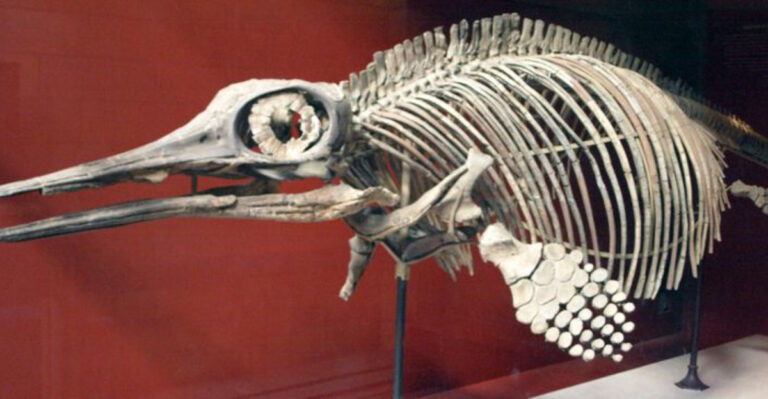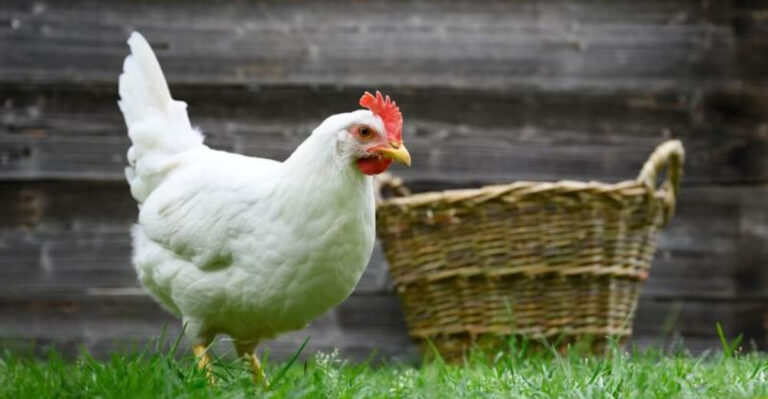14 Drawbacks Of Getting Your Dog From A Breeder

Getting a dog from a breeder can seem like the perfect way to find your new furry friend, but it comes with its own set of challenges. From high costs to the ethical concerns surrounding selective breeding, there’s a lot to consider.
While breeders can offer well-documented pedigrees, the process can sometimes overlook important factors like the dog’s health and temperament. Before making this decision, it’s essential to weigh these drawbacks carefully.
1. High Costs, Low Value

Imagine spending a fortune on a pup only to realize that love doesn’t come with a price tag.
Breeder pups often come with hefty price tags, making your wallet lighter than you’d hoped. It’s like buying a designer handbag, stylish yet not always practical.
While some might argue that purebreds from breeders are premium, remember that shelters are bursting with loveable companions waiting for a forever home.
2. Emotional Damage For Dogs

Dogs purchased from breeders can experience emotional damage that often goes unnoticed. The early separation from their mothers and littermates can lead to anxiety and attachment issues later in life.
These puppies may also miss out on the vital socialization that occurs in a more natural environment.
Over time, this lack of early emotional development can result in behavioral problems that could have been avoided with a more holistic approach to their upbringing.
3. Commercial Breeding: A Business, Not A Service

Commercial breeding often prioritizes profit over the well-being of the animals. Breeders may focus on producing as many puppies as possible, leading to overcrowded conditions and insufficient care.
This business-like approach can result in dogs being raised without the proper socialization, health screenings, or emotional bonding. As a result, the dogs may face lifelong issues, including behavioral problems and health concerns, that stem from being treated as commodities rather than companions.
4. Behavioral Quirks

Ever met someone who’s all looks and no personality? Breeder dogs can be like that—bred for beauty but sometimes lacking in well-roundedness.
These dogs can develop behavioral quirks due to their breeding-focused upbringing. From anxiety to hyperactivity, their personalities might need more than just basic training.
Consider adopting a shelter dog whose quirks have already been ironed out through experience!
5. Ethical Dilemmas

Ever had your conscience nag at you like a dripping faucet? Supporting breeders can spark ethical dilemmas, as it might encourage puppy mills and unethical breeding practices.
Many breeders aren’t just hobbyists, but businesses prioritizing profit over puppy welfare. Choosing adoption means taking a stand for ethical treatment and giving deserving dogs a second chance.
6. Overpopulation Is A Growing Concern

Overpopulation in the dog world is a serious issue that contributes to overcrowded shelters and rescues. With an excess of puppies bred for profit, many end up without homes and are left to face uncertain futures.
This overwhelming number of dogs in need of care further strains animal welfare resources. By focusing on adoption and responsible breeding practices, we can work toward alleviating the burden on shelters and give more dogs a chance at a loving home.
7. Unpredictable Traits

Think of it as ordering a mystery box online – breeder dogs might not always meet expectations. Despite breeding efforts, traits like temperament and behavior can still be unpredictable.
You might end up with a high-energy pup when you were expecting a couch potato. Why take that risk when mixed-breeds offer delightful surprises wrapped in fur?
8. Limited Lifespan

Breeder dogs often face a reduced lifespan due to genetic issues, making farewells come too soon. Imagine planning a road trip only to have your car break down halfway!
On the other hand, mixed-breeds tend to live longer, healthier lives. They offer enduring companionship without the ticking clock anxiety. Isn’t a long-lasting bond worth choosing a shelter dog over a breeder pup?
9. Environmental Impact

Think of breeding like mass-producing goods – the environmental impact is real. Breeder operations often consume resources and add to waste, much like factories.
By choosing adoption, you reduce demand for resource-heavy breeding practices and help lessen the environmental burden.
It’s a small step toward a greener future, one paw print at a time. Isn’t that a win-win for both you and Mother Earth?
10. Scarcity Of Availability

Ever felt like searching for a needle in a haystack? Finding the right breeder can be just as challenging!
Limited availability might mean waiting lists and long distances, making the process more exhausting than anticipated.
Adopting from a local shelter is often quicker and less hassle, offering convenience along with compassion. Why wait when your perfect match might be wagging its tail around the corner?
11. Unregulated Practices

Imagine a world without rules – chaos, right? The same goes for dog breeding, where lack of regulation can lead to poor practices. Without stringent oversight, some breeders cut corners, affecting dog welfare.
Adoption ensures that you’re supporting a transparent system dedicated to animal care. Why gamble on unregulated breeding when shelters offer assurance and accountability?
12. Risk Of Inbreeding

Picture a family tree where all branches lead back to the same root. Inbreeding in dogs can result in serious health issues and a lack of genetic vigor.
It’s like trying to build a house with only one type of brick – fragile and risky. Mixed-breeds, with their diverse lineage, promise robustness and vitality, making them a reliable choice for companionship.
13. Lack Of Adoption Opportunities

Choosing a breeder often means overlooking countless dogs awaiting adoption. Many shelters house loving pets eager to join families, each with their own stories and charms.
Breeders might offer purebreds, but shelters provide unique companions with loads of character. It’s not just about finding a pet; it’s about giving a second chance. Adopting from shelters can lead to unexpected joy and connections, making a difference in a dog’s life.
14. Stringent Regulations And Compliance

Regulations govern responsible breeding, yet compliance is key. Many breeders face stringent requirements that ensure animal welfare, but not all adhere. Those who cut corners might overlook vital health checks and environmental standards.
Despite regulatory frameworks, inconsistencies exist, risking the welfare of dogs. Some breeders excel in care, while others may neglect crucial aspects. Thus, potential pet owners should investigate breeder reputability diligently.






